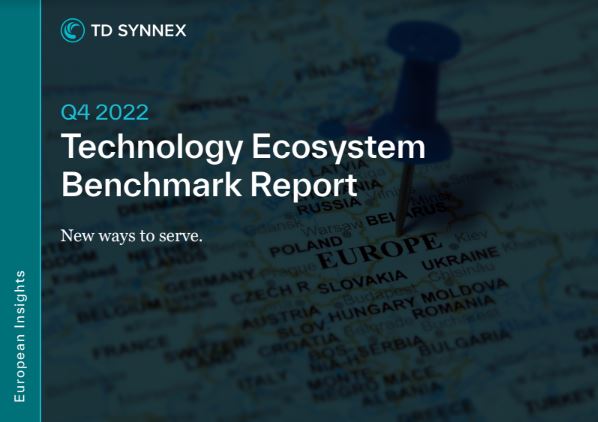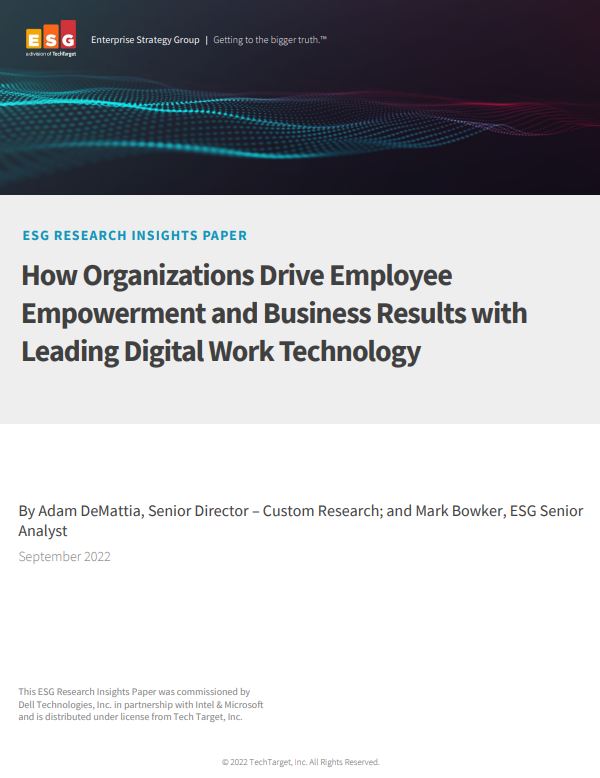Japan just isn't taking digital transformation seriously enough
It’s a bad sign when the digital minister chuckles about the prominence of floppy disks at an overseas tech conference


Japan is known around the world for its technology – in high-speed rail, robotics and even toilets. Even watching the recent Bullet Train offers a glimpse into how Japan is perceived, with the film set on arguably the country’s most famous technological landmarks. The story is very different at home, however, with businesses and the public sector alike struggling to modernise. This struggle to digitally transform, which puts Japan at risk of restricting its future growth, is down to the government’s fragmented leadership, businesses in thrall to an archaic working culture, as well as a shortage of tech talent.
Given these challenges, it was shocking to witness Japan’s digital minister Taro Kono treating the subject so lightly at Singapore’s STACK 2022 Developer Conference. In a short video message, with his head beaming high above the stage, Kono smiled while telling the audience they might have heard about Japan’s war against the floppy disk and fax machine. “We are so fed up with analogue technology,” he quipped, adding he thinks Japan is lagging behind on digital transformation. “We hope we can catch up with you soon.”
Japan isn’t just “lagging behind”, but suffered a full-on “digital defeat” during COVID-19. The nation struggled to implement an online vaccine booking system and had to resort to physical tickets. It was so slow that prime minister Yoshihide Suga called in the armed forces to help and, after several more digital embarrassments, led to the creation of the digital agency, which Kono spearheads. As its head, it might have been worth Kono giving the impression he takes his job more seriously, especially when failing to evolve led to a logistical catastrophe during a global pandemic.
Japan’s time to digitise is running out
Kono “war” on the floppy disk made for a great soundbite, and even raised his profile internationally. Based on his appearance in Singapore, and, it seems he only sought to repeat his material and give further oxygen to this talking point. It might, though, be time to get serious about digital transformation and face up to the potential consequences.
In Singapore, there couldn’t be a greater contrast between two countries – one sailing ahead and one struggling to stay afloat. Kono’s digital transformation agency, established on 1 September 2022, is understaffed. While Singapore’s GovTech employs more than 2,000, Kono’s agency employes just 700. This is despite Singapore’s much smaller population. Indeed, Japan’s leaders might do well to take inspiration from what Singapore is aiming to achieve. Its various agencies are working on a number of exciting projects, with a helping hand from GovTech, from digitising food production to preserving natural greenery.
Instead of concrete ideas, Kono talked about “warm hearted” digital transformation, which means technology that can reach people across the country, including marginalised groups, to create a more inclusive society. There’s nothing wrong with that, but if you can’t implement any kind of meaningful digital transformation to begin with, technology won’t reach anyone.
RELATED RESOURCE

This is against a backdrop of the country shedding population fast, with half a million “disappearing” each year. This is mirrored in the number of people dropping out of the workforce. With depopulation and an ageing society to contend with, Kono pits technology – in a nebulous way – as the answer to these challenges. This is despite many previous efforts running into problems, with no strategy to overcome them in future.
Sign up today and you will receive a free copy of our Future Focus 2025 report - the leading guidance on AI, cybersecurity and other IT challenges as per 700+ senior executives
The city of Maebashi, where the government is connecting its national My Number ID card – kick started in 2016 – with a payment system for transportation, is a good example of how even new projects are faltering. Despite being live for a number of years, the government has struggled to attract citizens to register for the ID card. Soon, it’s set to be linked with driving licences and, by 2024, citizens need to sign up or potentially lose access to public health insurance. Despite its growing significance, though, people can only register for one by filling out a form and sending it through the post – another analogue process for the pile.
Digital ambitions should begin at home
Kono was keen to point out Japan is hosting the G7 Summit next year, where it hopes to take the lead on all things digital. During the summit, he wants to lead talks on data free flow with trust (DFFT), which looks to govern data flows through international cooperation. Yes – the country still using floppy disks hopes to push for better international frameworks.
The digital minister even analysed the data strategies employed by other countries. He says China, an authoritarian government, has a monopoly over personal data. Europe on the other hand, has GDPR where privacy comes first and last, and with which it’s hard to move data across borders. Lastly, he mentioned the US – a “wild west” when it comes to data.
As for Japan’s model? It’s looking to hit the “right balance” between Europe and the US. By appearing to analyse these rules without offering an original model for Japan, though, Kono is merely giving the impression he can talk the talk on the world stage. Meanwhile, everyday services, in Japan, continue to suffer. It’s almost as if the government is leapfrogging the issue, focusing on abstract ideas international treaties, while unable to bring the change he advocates for at home, where he has the opportunity.
There could be more at play here than meets the eye. Under the current prime minister, Fumio Kishida, three cabinet members have left within a month. His approval ratings are also sinking. Although Kono is part of the same party, he could be lining himself up for the top job if Kishida does decide to go, especially since he was seen as the frontrunner in the previous leadership election – which he lost.
Leading his agency might signal he advocates for change, but Japan still has a mountain to climb. Meanwhile, If Kono did depart his current role, it further underlines just how fractured digital leadership is, with three ministers leading the agency in just over a year.
RELATED RESOURCE

How organisations drive employee empowerment and business results with leading digital technology
What you can achieve with a leading approach to digital work
Kono appears to be weaponising digital transformation to engage with his counterparts overseas while neglecting the core issues domestically. Regardless of his own ambitions, the need for concrete digital transformation in Japan continues to grow, with the economic consequences worsening the longer this remains unaddressed.
Japan s in serious trouble, with political leaders who are neglecting to implement genuine change and public services crying out for streamlining. COVID-19 already exposed major cracks in Japan, leading to a devastating effect on citizens. Instead of cracking wise about floppy disks, it might be time to get serious and recognise the desperate position Japan is in.
Zach Marzouk is a former ITPro, CloudPro, and ChannelPro staff writer, covering topics like security, privacy, worker rights, and startups, primarily in the Asia Pacific and the US regions. Zach joined ITPro in 2017 where he was introduced to the world of B2B technology as a junior staff writer, before he returned to Argentina in 2018, working in communications and as a copywriter. In 2021, he made his way back to ITPro as a staff writer during the pandemic, before joining the world of freelance in 2022.
-
 Will autonomous robotics leap forward in 2026?
Will autonomous robotics leap forward in 2026?In-depth Connectivity and cost benefits remain barriers, despite breakthroughs in physical AI
-
 AWS and NTT Data team up to drive legacy IT modernization in Europe
AWS and NTT Data team up to drive legacy IT modernization in EuropeNews Partnership between AWS and NTT DATA aims to boost AWS European Sovereign Cloud capabilities
-
 Untethered: How CIOs and CISOs are paving the way for the new hybrid workforce
Untethered: How CIOs and CISOs are paving the way for the new hybrid workforceWhitepaper Effective techniques to transition from exposed legacy infrastructure to an effective zero trust strategy
-
 Creating successful supply chain planning transformations in the consumer industry
Creating successful supply chain planning transformations in the consumer industryWhitepaper Think differently about SCP transformations and, in doing so, move into a better future for supply chains
-
 Healthcare’s next chapter
Healthcare’s next chapterwhitepaper Revolutionizing how you care with EPR experts you can trust
-
 Strategic app modernization drives digital transformation
Strategic app modernization drives digital transformationWhitepaper Modernize your applications to address business needs both now and in the future
-
 Delivering fast and secure digital experiences for the modern hybrid workforce
Delivering fast and secure digital experiences for the modern hybrid workforceWhitepaper A new approach to digital experience monitoring that can monitor the health of all systems
-
 The future of work and the forgotten workforce
The future of work and the forgotten workforcewhitepaper How to deploy a mobile-first strategy so no one gets left behind
-
 Building an outstanding digital experience
Building an outstanding digital experiencewhitepaper Insight into how banks and financial services organizations can deliver the digital experiences customers and employees expect
-
 The digital-first journey towards the future enterprise in Europe
The digital-first journey towards the future enterprise in Europewhitepaper The shift to a digital-first Europe
